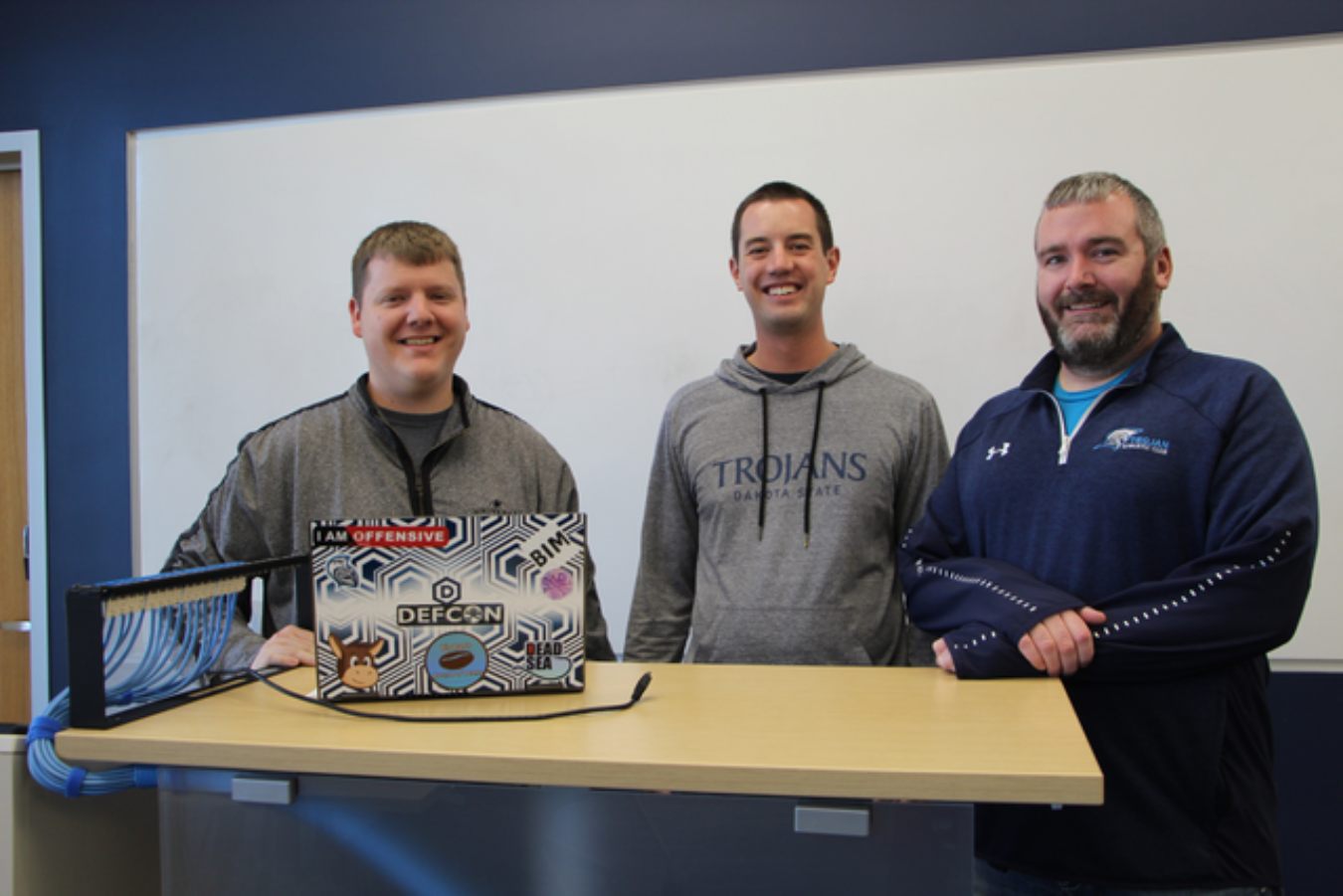Academic conferences foster new ideas
December 2, 2021

An informal tradition that improves course content is continuing with Dakota State faculty.
Several years ago, Dr. Wayne Pauli, now an Emeritus Professor, invited a student, Kyle Cronin, to an academic conference. This year, Cronin invited Shawn Zwach to the same conference, the EDSIGCON + CONISAR 2021 conference, which focuses on cyber defense education.
“It’s important as a professor to attend conferences and publish research,” said Cronin, who is now Associate Professor of Computer and Cyber Sciences in The Beacom College of Computer and Cyber Sciences. Zwach is an instructor of Computer and Cyber Sciences, and this was his first academic conference since joining DSU. Dr. Mike Ham, Assistant Professor of Computer and Cyber Sciences, also attended the conference.
“I think in any industry you can get sort of set in a way of doing certain tasks,” said Zwach, “and attending any conference, this one included, helps foster new ideas or see different approaches to problems that we all face.”
The EDSIGCON conference “had a wide variety of topics and I found a few things that I would like to try out with some of our processes within The Beacom College,” he stated.
Cronin was a presenter at the conference, talking about a program he created and uses in class that “teaches students how to find threats and attacks on wireless networks.” This example shows students that they create their own solutions to complete particular tasks. By doing things themselves, “you save some money and learn quite a bit along the way,” Cronin said.
The key feature of this conference is that it is attended by individuals who are less highly technical, “so it’s a good avenue to show how we can take a complicated topic and simplify it for a greater audience,” Cronin said. This audience, in turn, can provide good feedback and ideas to move a project forward.
Ham presented research he has been conducting with Cronin, and colleague Dr. Tom Halverson, Associate Professor of Computer and Cyber Sciences. They researched the adoption of a routing protocol strategy called RPKI, and proposed a tool to make it easier to adopt this strategy, and double-check that it is implemented right.
The academic conference setting is “about taking feedback and developing and implementing tools based on feedback and suggestions, and then building a solution,” said Ham, but “it always comes back to being a teaching tool somehow.”
